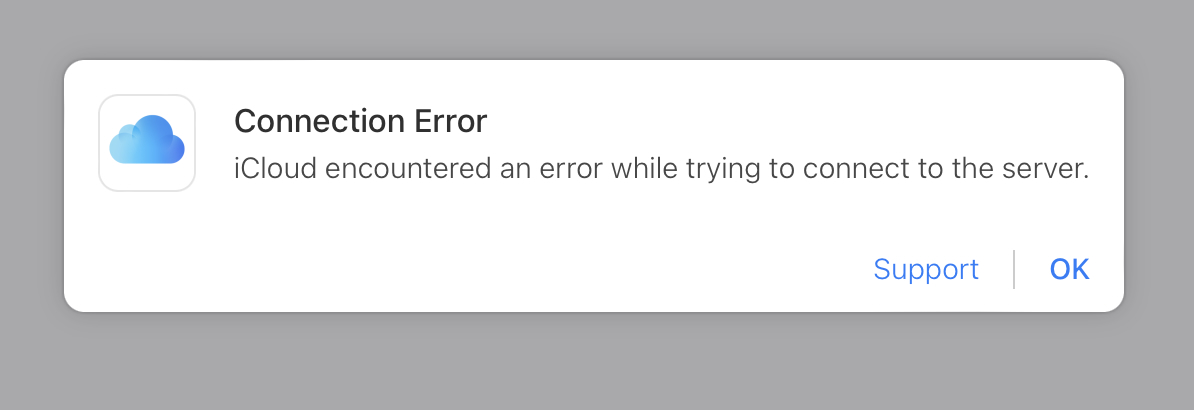|
|
Monday Review: Zuckerberg's Black Hole; Musk's Destruction; Apple Quietly Getting on with ThingsBy Graham K. Rogers

Perversely, proof of this came within a couple of hours of reading the TechCrunch article. I saw a site that had some foods I thought I might like to try and went through the process, filling the cart with about 1500 baht of produce. As some was fresh food, it needed cool packaging and there was a charge of 200 baht for this, which is OK, and a delivery charge, also OK. I balked a bit when I saw that using the credit card would cost an additional 3%. I thought we had got over this and that the banking laws had been changed to stop such fees. The company is already making a profit on the goods sold and most online sites are willing to absorb the small charge. I fixed that by switching to a bank debit: easy enough these days. Then I started filling in address details. There are a number of different boxes for the address, location, area, but none of this is difficult normally. However, the order page would not accept the condo name: needs a number. I tried adding the building name that has a number: needs a number. I added the condo number too: needs a number. Three strikes and you are out. I closed the page and will not make the order now. I ignored an automated follow-up email that noted the incomplete order.
 Shopping - Just not online
Taking up the comments of Gurman, Palash Volvoikar of iMore, suggests the Apple version of this online world will be drastically different. He note that Apple CEO Tim Cook also recently said in an interview that he doesn't think an average person would know what the metaverse is. There have been a number of movies that examine completely-immersed online worlds, but would users be interested in taking part in such an environment on a day to day basis? I thought of some of the cinema productions that I have enjoyed that take this immersion to different (sometimes absurd) levels: the Matrix series, Inception (worlds within worlds), The Thirteenth Floor, and Ready Player One. With the last of these, the players are working in a virtual world viewed through headsets, while their bodies are clearly still in the real world.
At least with an online meeting those talking part are real and visible if they turn on their cameras. I would not want an office meeting, or an online class with avatars. Some of the scenarios seemed to be borrowing directly from the Matrix (remember when Trinity calls for a helicopter manual), but this is not new. When I looked at the Microsoft goggles a few years back at a medical conference in Bangkok, it was possible to tap on external information like patient notes. The goggles will have to be better than that as I had difficulty tapping in the sky (somewhere above me) and the clarity of the display was not really up to the task: nothing like what Zuckerberg's video presentation suggests will be possible.
Microsoft Goggles as shown in August 2016 at Queen Sirikit Centre
Despite Zuckerberg's unconvincing comment that recent years have been humbling (remember this was before the $10 billion black hole and the massive personnel reductions) the length of the video contradicts this. Humble is 75 seconds, not 75 minutes. We are looking at a man who is convinced he has the answer to all the world's problems and all we have to do is trust him, like many carnival barkers before. This, as Clifford Stoll wrote, is silicon snake oil, but while those carnival sharks knew the products they were selling were valueless, Zuckerberg seems to have sold his soul and apparently believes everything he says. We believe this because despite the massive losses incurred, he is determined to continue with the investment into virtual systems. He blames Apple for much of the reduced income - as well he might - without accepting that the whole thing is a house of cards. Commenting on a Bloomberg article, a MacDaily News headline beginning, "Facebook's profits depended on trampling it [sic] users' privacy," captures the vaporware nature of such a venture. As well as the included section from Alex Barinka, the list of earlier comments from MDN is worth reading again. However, as Oliver Haslam (iMore) notes, with some hard work and the use of AI at Meta, the ad income is starting to bounce back.
Musk made a virtual appearance at a conference in Bali this week, where he admitted he had too much on his plate right now (Dan Milmo, Guardian). The report adds that another 4,400 people are to be "let go": "Twitter has axed more than 4,000 contractors working in areas including content moderation and engineering." Arthur comments on the transcript in The Verge, "The whole thing is worth reading, because it makes clear how Musk is just thrashing here. He has no pathway, no coherent idea of where he's trying to get to," adding "The relentless trolling Musk has suffered is the perfect comeuppance: the guy who thought he was the best discovering he's a rank amateur."
And erratic. Musk is not thinking things through fully or maybe he is and this dovetails with the views of several wealthy and powerful people in tech who think that the liberal left have hijacked the universe. Further evidence of this is presented by Natasha Lomas (TechCrunch) concerning a change in GDPR status: the EU General Data Protection Regulation. In a long article that is worth reading in full, Lomas writes, "Twitter currently avails itself of a mechanism in the GDPR known as the one-stop shop (OSS)" and explains why this is useful, but with staff cuts that also affected the operation in Ireland, there is now no data protection officer. This will increase "the complexity, cost and risk of achieving GDPR compliance" and could see fines up to 4% of annual global turnover: "Twitter's annual revenue in 2021 was $5.08 billion" (Sarah Perez, TechCrunch). Some sense did prevail briefly and a day or so later, Natasha Lomas (TechCrunch) reports, that Twitter has appointed an "acting" replacement for the Data Protection Officer (DPO): the bare minimum for the EU. The article contains much background and an outline of the acting DPO, Renato Monteiro who has been with Twitter for just under 3 years. Later in the week Musk demanded that those left must give a commitment (by Thursday) to give their all with long nights working (Dan Milmo, Guardian). So having sacked many of the workforce (and asked some back), he wants those left to work twice as hard: "Anyone who has not affirmed their commitment by that deadline, Musk said, would receive three months of severance pay." Milmo's article outlines a number of pronouncements and events in the death spiral of Twitter this week. Unsurprisingly, there were several reports by Friday morning (here) that hundreds of twitter employees had declined to sign and there appeared to be a mass exodus (Juli Clover, Mac Rumors, et al). A later Guardian report (Josh Taylor) reveals that Twitter "temporarily closed its offices to staff" as users also began to jump ship. It is not that there were no warnings. This may all be part of the Musk master plan as there is a theory that he thrives in chaos. I am not sure that investors will appreciate that. An article in RTÉ discusses the political impact Musk has (like other wealthy entrepreneurs), comparing him with "Thomas Edison or iconic Apple founder Steve Jobs." In a TechCrunch article, Darrell Etherington writes that Musk has specific intelligence and talents that have contributed to his success, but preparedness and planning aren't among them. An opinion in the article suggests that, "Perhaps the most insidious (but also arguably effective) way that Musk wields disaster as a motivator is in moving his employees to action." That would appear to explain what is happening right now. Maybe. But I don't think they are going to throw $44 billion away. It was revealed late Saturday that Twitter had lifted the ban on Donald Trump after Elon Musk conducted a poll that saw bots voting too (Guardian and Amanda Silberling, TechCrunch). I was among the 42% of No voters.
When I finally updated my AppleTV OS to v16, I had the displeasure of re-registering my Apple TV+ account, which was Ok before I started the update, and was open on the iPad. The immediate problem was that I could not see any Login option, just a 7-day free trial. I went for that and had to register again then agree to the payments after the 7 days, which I had accepted a few days before. That screenshot was on 12 November. A couple of minutes later, I had a message which told me, you have already done this. A bit messy I feel. We are also told that the update to iCloud online has now gone live, although when I tried using Safari on the iPad Pro there were "connection problems". On the MacBook Pro, even after a couple of days, it still shows this, although it is fine using the iPad's System Settings or other components (Photos, Pages, et al) but not using the browser. When I tried a PC at the office, I tried logging in but the password was not recognized. To be fair, that may have been me. I have posted in the Apple forums to see anyone has a suggestion: perhaps it has not yet been rolled out worldwide. No change to the access by Saturday afternoon (iPad Pro or Mac) and no replies on the forums. It is not as if I cannot access my iCloud account: everything works fine on the Mac, iPad and iPhone; but if there is another option, I would like to know that it works.

Rebuffed iCloud login attempt
Specific loopholes allow corporations to avoid tax through offshore loopholes which Apple has used, like others. For example, General Electric, cited often as an example of a loyal US corporation, earned $27.5 billion in profits from 2008 to 2012 but claimed tax refunds of $3.1 billion (Americans for Tax Fairness). That site also has Apple as a bad example of tax avoidance. Note that tax evasion is illegal, tax avoidance is not. In a recent report on tax avoidance, the Tax justice Network claimed that "states were depriving themselves of $89bn . . . a year by allowing some of the world's biggest companies anonymity over the way they conduct their tax affairs" (Larry Elliott, Guardian), although this seems to be going over similar arguments concerning corporate taxation that have been mentioned frequently before, the idea of airing their dirty laundry in public has some relevance as several countries allow corporations not to "be named and shamed if they provided information about shifting profits into tax havens". The EU created legislation that came into effect in January 2020. It was aimed at corporate tax avoidance. In addition money laundering rules put mechanisms in place to identify ownership information on bank and payment accounts and safe-deposits" (Jöel Reland, Full Fact). This was not to applied to accounts outside the EU. It was a sheer coincidence that there was pressure for the UK to leave the EU and even more of a coincidence that Brexit happened in January 2020. It is now being recognized as an economic disaster, but several rich folks kept their money safe. Corporations and the wealthy will use what tools are available to them.
PayPal is using the NDID platform as a sole means of verifying the identity of customers seeking to use PayPal Thailand personal accounts (including existing account holders whose accounts will be transferred to PayPal Thailand). For the time being, a Thai national ID is required to enroll in NDID (other forms of identification which do not have a 13-digit Thai national ID number, such as a non-Thai passport, work permit, non-Thai Identification card (pink ID), or Thai Permanent Resident Permit cannot be accepted). In other words, goodbye PayPal.
Graham K. Rogers teaches at the Faculty of Engineering, Mahidol University in Thailand. He wrote in the Bangkok Post, Database supplement on IT subjects. For the last seven years of Database he wrote a column on Apple and Macs. After 3 years writing a column in the Life supplement, he is now no longer associated with the Bangkok Post. He can be followed on Twitter (@extensions_th) |
|





 Earlier in the week I saw a Tweet from an engineer that contradicted what Musk had claimed was the cause of a slowdown in many countries. This is now on BoingBoing (
Earlier in the week I saw a Tweet from an engineer that contradicted what Musk had claimed was the cause of a slowdown in many countries. This is now on BoingBoing ( I recently mentioned that my Apple Music subscription had risen from 129 baht a month to 139 baht (7.75%): not particularly heavy. However, this week I had another notification from Apple: this time about Apple TV+. So far it has been a quite reasonable 99 baht a month, but now I am informed that as from the beginning of December it will rise 100 baht to 199 baht a month (101%): definitely more than currency fluctuations. In the USA the price is $6.99, which is about 250 baht before any taxes.
I recently mentioned that my Apple Music subscription had risen from 129 baht a month to 139 baht (7.75%): not particularly heavy. However, this week I had another notification from Apple: this time about Apple TV+. So far it has been a quite reasonable 99 baht a month, but now I am informed that as from the beginning of December it will rise 100 baht to 199 baht a month (101%): definitely more than currency fluctuations. In the USA the price is $6.99, which is about 250 baht before any taxes.
